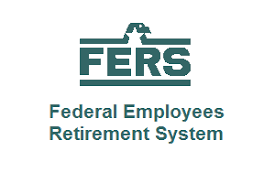The Benefits and Disadvantages of FERS Deferred Retirement

There are two scenarios in which a FERS Employee might opt for Deferred Retirement.
Example 1: When a FERS-covered employee is ineligible to retire and prefers to leave the government rather than work the additional years required to qualify for an immediate and unreduced FERS annuity retirement.
Example 2: When a FERS-covered employee is younger than their MRA, and their agency is undergoing a reduction in force (RIF), substantial restructuring, or function transfers. The employee is ineligible for retirement and has no choice but to depart the federal government.
If a FERS-covered employee meets the following requirements, they may be eligible for a deferred retirement in which they will receive their FERS annuity for the remainder of their life:
• Completes the required amount of civilian service
• The employee does not request a refund of their FERS Retirement and Disability Fund contributions while leaving federal service (made via payroll deduction while working under FERS)
• When the employee reaches the requisite age to begin collecting their FERS deferred annuity, they formally notify OPM‘s Retirement Office of their eligibility
Civilian Service Requirements
A FERS employee must have completed at least five years of creditable civilian service to be eligible for deferred retirement. For this reason, creditable civilian service includes:
• Permanent full-time or part-time employment with full FERS contributions made to the FERS Retirement and Disability Fund via payroll deduction
• “Non-deduction” (temporary or intermittent) service for which a full FERS deposit was made (including interest costs) before retirement from federal employment.
• Work for which full Social Security (FICA) payroll taxes, as well as full or reduced CSRS deductions, were deducted and not repaid
• Deferred retirement for employees who are also eligible for a CSRS annuity component for their retirement (“Trans” FERS personnel):
(1) “Non-deduction” (temporary or intermittent) service, whether or whether a deposit is made or is deemed under the alternative annuity conditions
(2) Service for which full CSRS retirement contributions were taken, typically 7% of one’s income, even if CSRS funds were returned and not re-deposited
Non-Creditable Civilian Service
The following categories of FERS service are not eligible to count toward the 5-year minimum civilian service requirement:
FERS service for which a FERS-covered employee demanded a return of FERS payments deducted from their paycheck while the employee:
(1) Worked for the federal government earlier
(2) Resigned from the federal government and demanded a return of FERS contributions (paid through payroll deduction)
(3) When the individual returned to federal service, they did not re-deposit those contributions.
When Does a Deferred Annuity Start?
A FERS employee who retires via the deferred retirement option will be eligible for a deferred FERS payout later. The date on which the departed employee’s deferred FERS retirement and first FERS annuity check will begin will be determined by the number of years of creditable service the employee had at the time of their formal departure from federal service.
Contact Information:
Email: [email protected]
Phone: 9568933225
Bio:
Rick Viader is a Federal Retirement Consultant that uses proven strategies to help federal employees achieve their financial goals and make sure they receive all the benefits they worked so hard to achieve.
In helping federal employees, Rick has seen the need to offer retirement plan coaching where Human Resources departments either could not or were not able to assist. For almost 14 years, Rick has specialized in using federal government benefits and retirement systems to maximize retirement incomes.
His goals are to guide federal employees to achieve their financial goals while maximizing their retirement incomes.
Popular posts

How to Pick the...
Key Takeaways: Choosing the...

Divorce and Your Federal...
Key Takeaways Divorce can...
Free Retirement Benefits Analysis
Federal Retirement benefits are complex. Not having all of the right answers can cost you thousands of dollars a year in lost retirement income. Don’t risk going it alone. Request your complimentary benefit analysis today. Get more from your benefits.
I want more



